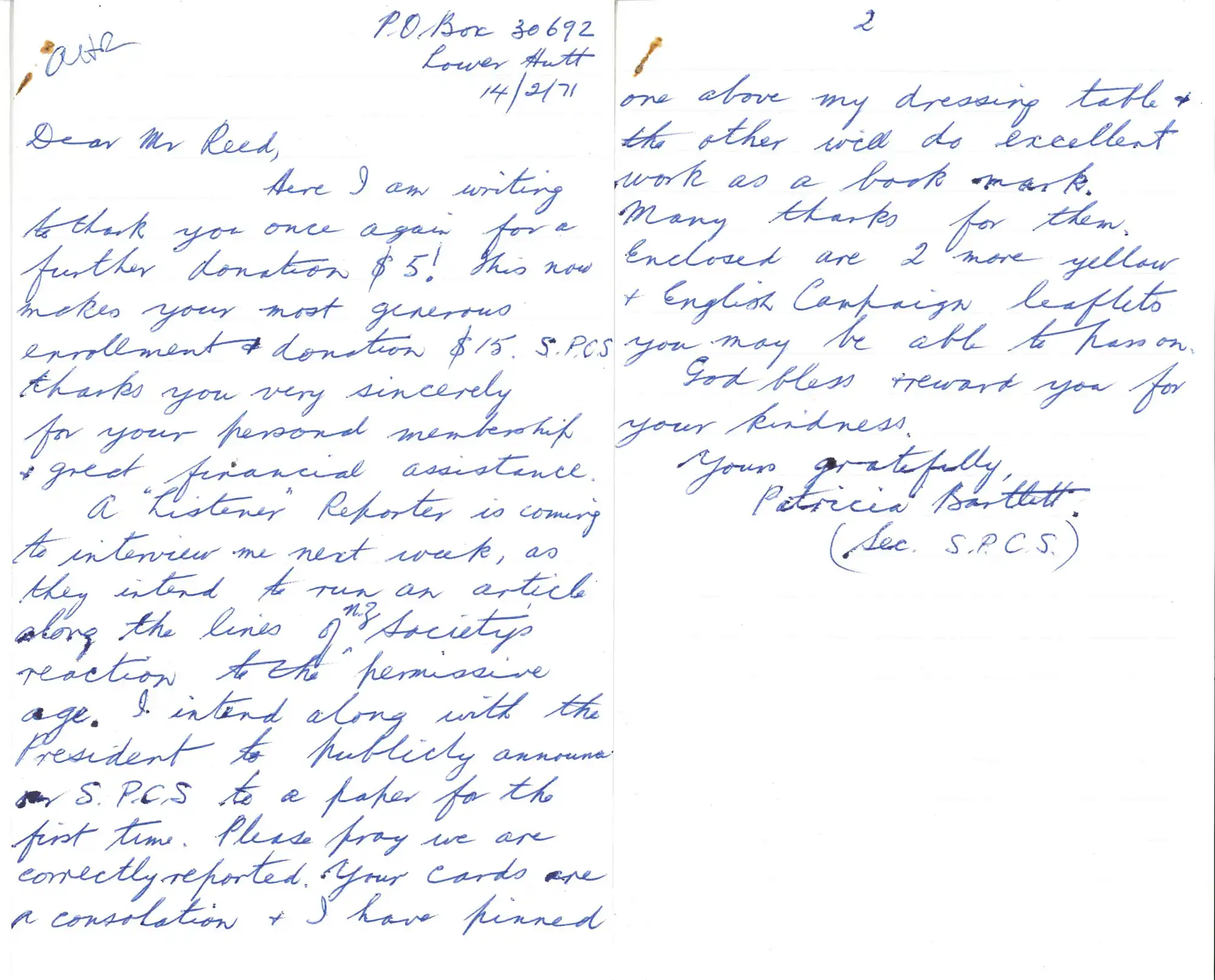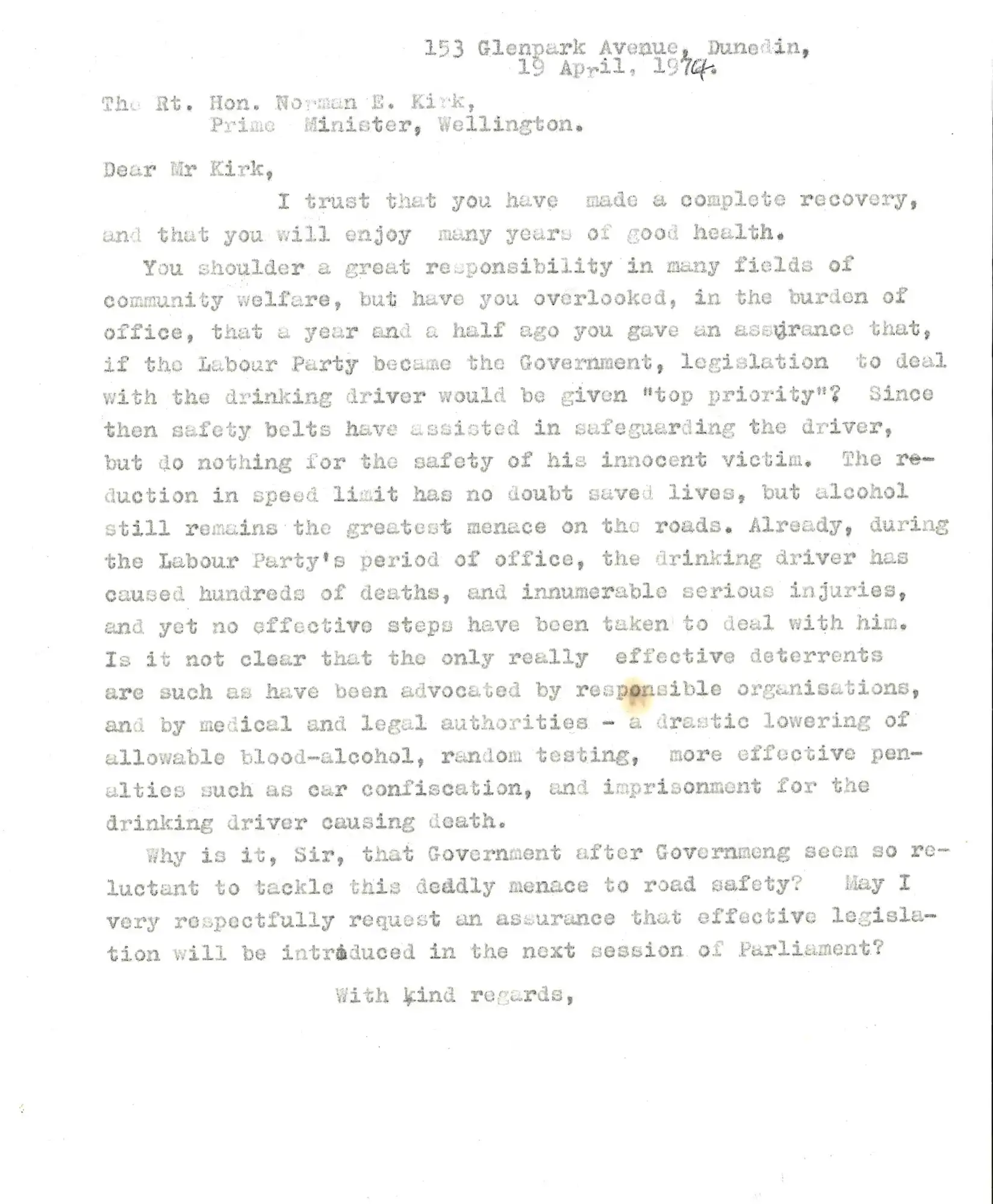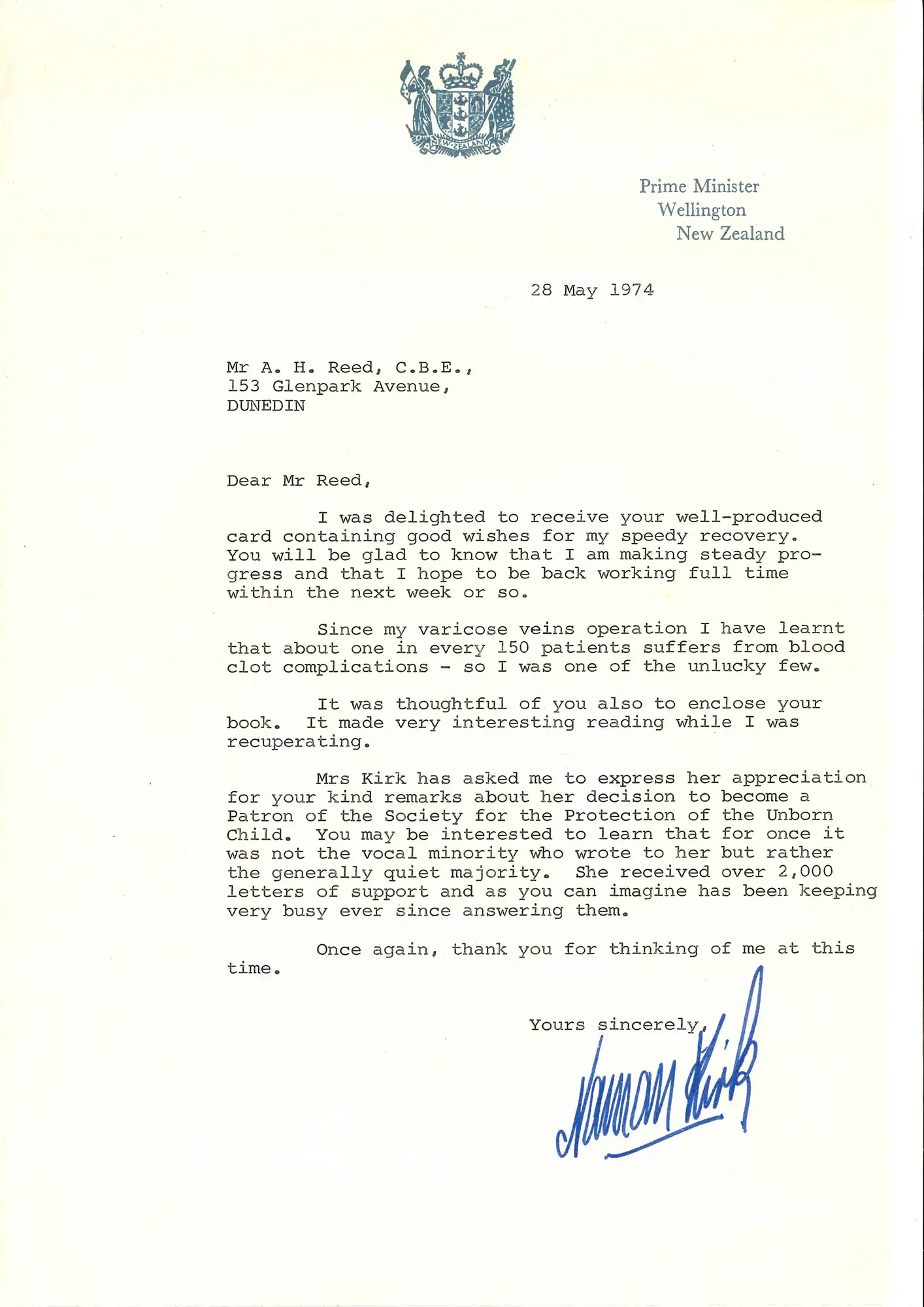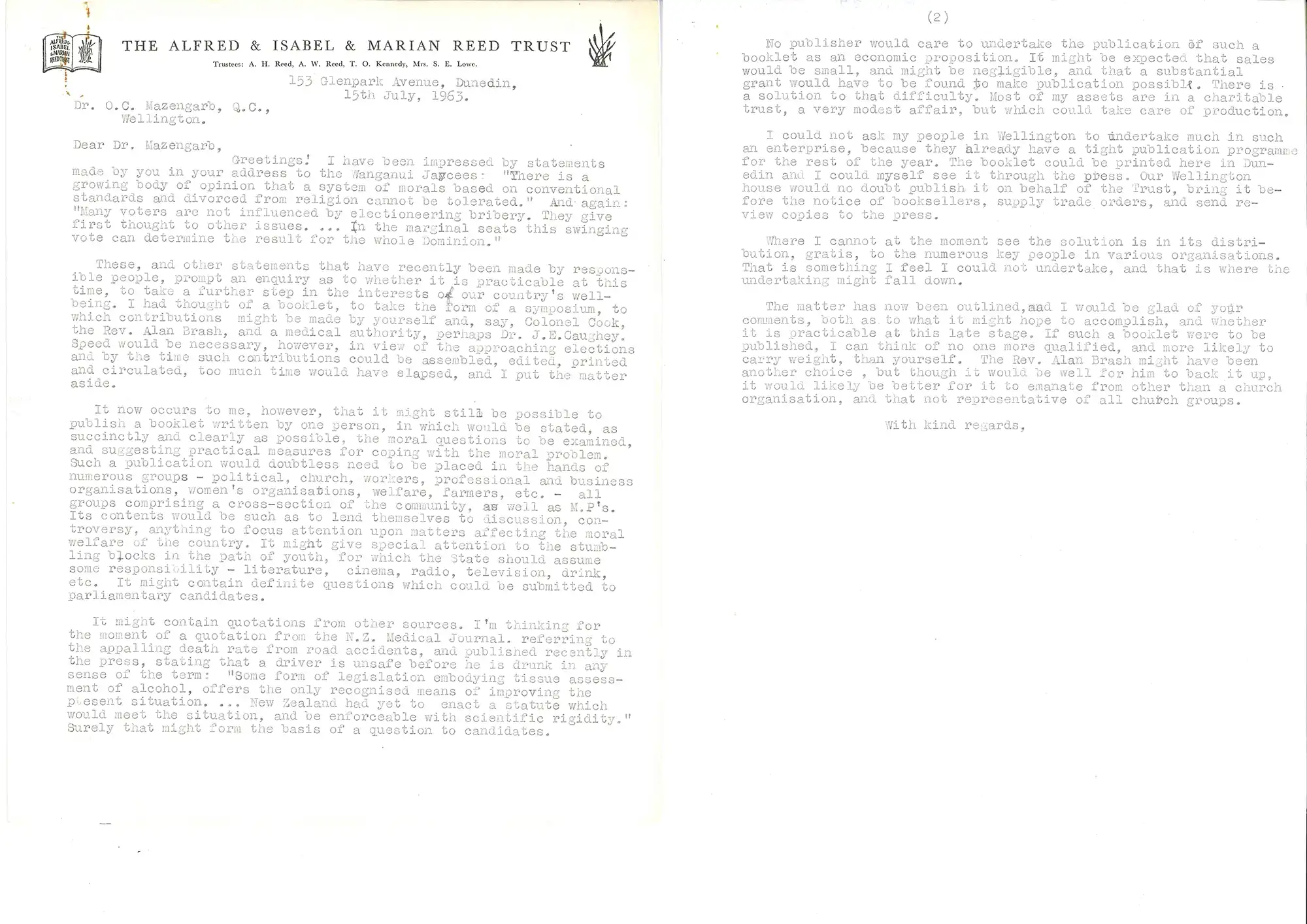Case W3
- Moral Conservatism/Social Issues

Letter, Patricia Bartlett, Lower Hutt to A.H. Reed, Dunedin, 14 February 1971.
A.H. Reed was a moral conservative, which to him was a simple matter of applied Christianity. In later life, he regularly wrote letters with morals themes to the editors of the Otago Daily Times, Evening Star, and The Listener.
Like many of his time, Reed believed that the moral fibre of society was in steady decline. He was politically non-partisan but maintained a keen interest in specific social issues. Matters of concern for Reed included violence and lewd content on television, in cinema and in certain books. He took a conservative position on gambling and abortion and was critical of the pacifist stance of some churches.
Reed however defied the spirit of the times in his opposition to overindulgence in drink, and more specifically, in highlighting the drunk-driver problem.
Reed generally expressed support for the welfare state, again, as a matter of applied Christianity. His great love of the outdoors and walking doubtless influenced the progressive positions he took on environmental issues. Among other causes he opposed the mining of Saddle Hill, considering it an affront to history. He also supported the preservation of native bush on Flagstaff. For more on this topic see: Ian Dougherty. Books and boots, p. 181-192.
The former Catholic nun, and public face of the Society for the Promotion of Community Standards, Patricia Bartlett (1928-2000) was an iconic figure in 1970s New Zealand society. Reed corresponded with Bartlett and made regular donations to the Society. He also supported her unsuccessful campaign against the stage rock-musical Hair in 1972.

Letter, A.H. Reed to Norman Kirk, Wellington, 19 April 1974.
Reed’s moral conservatism marked him as old-fashioned to some, but in his crusade against the drunk driver, he was ahead of his time. He was a regular and bullish correspondent on this issue with both Dunedin newspapers from the 1950s onwards, supporting then unpopular measures such as random breath-testing, and lowering the permissible blood-alcohol ratio. He also advocated for stiffer penalties for those causing carnage on the roads.
Norman Kirk (1923-1974) was not the first Prime Minister to be berated with the earnest pleas of Mr Reed to act with more urgency on the matter.

Letter, Norman Kirk, Wellington to A.H. Reed, 28 May 1974.
This letter from Prime Minister Norman Kirk to A.H. Reed was written just three months prior to Mr Kirk’s untimely death.
Reed publicly supported the appointment of Norman Kirk’s wife Ruth as Patron of the Society for the Protection of the Unborn Child. The economically radical but socially conservative Prime Minister makes his own position clear in this frank and personal letter, which also touches on Mr Kirk’s health struggles.

Letter, A.H. Reed to Ossie Mazengarb, Wellington, 15 July 1963.
During the leadup to the 1963 general election, Reed engaged in an extended correspondence with Ossie Mazengarb, the Wellington lawyer, and former head of the 1954 inquiry into juvenile delinquency. Mazengarb had given a speech on moral issues and Reed contacted him with the idea of a Reed publication (potentially authored by Mazengarb himself) drawing attention to the impending dangers inherent in moral breakdown. Despite their efforts (the pair met in person in Dunedin in August), nothing became of the idea, in part because A.W. Reed was not convinced of its merit.
Mazengarb died in Wellington on 27 November, three days before the election.



